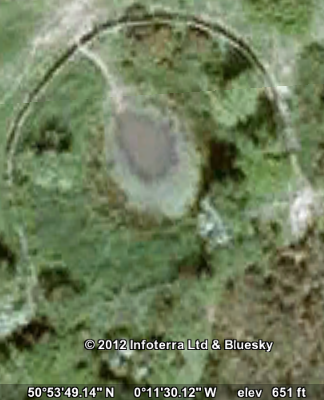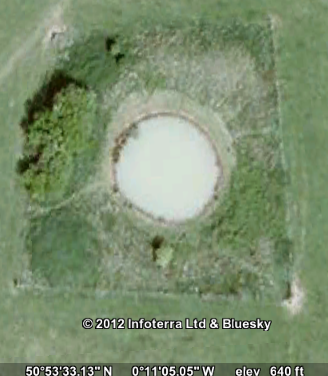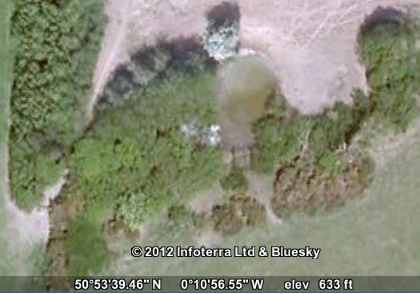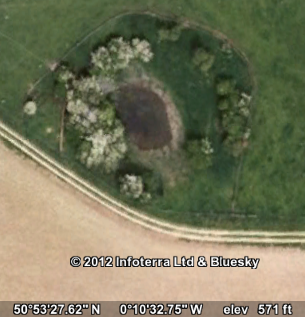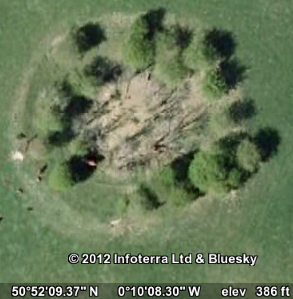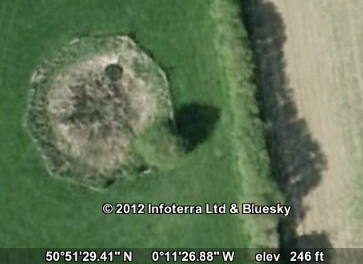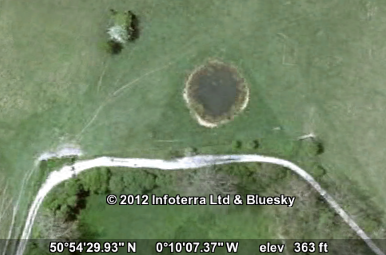A set of images from Google Earth showing location and elevation. Click on the image to get taken to the relevant place on Google Maps. This will allow you to navigate and thus see exactly where the pond is located. Most of these sites are either on publicly accessible land or adjacent to public footpaths or bridleways. They are all within walking distance of Fulking though you might be wise to drive to a suitable car park on the top of the Downs before you start your walk.
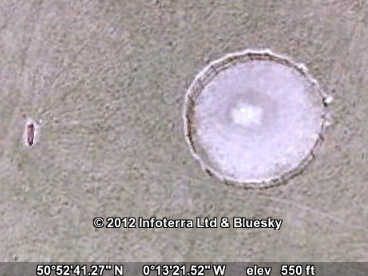
Tenantry Down: a crater on the surface of the moon, with a fence round it, and a metal trough to the left. Pond and trough are connected by a pipe.
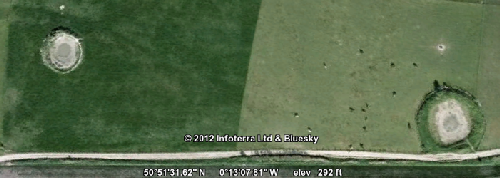
Foredown Road: two adjacent ponds. The one on the left is currently used by horses. The one on the right was subject to a Hove Borough Council restoration project as “a new educational resource” but has since become dilapidated.
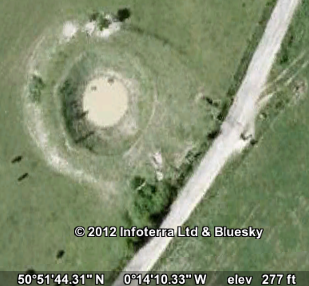
Mile Oak Dew Pond: due north of Mile Oak Farm, adjacent to the Sussex Border Path.
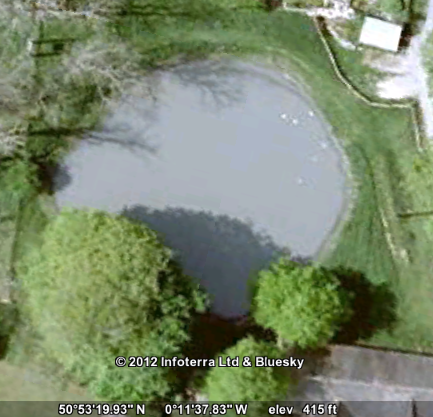
Saddlescombe Pond: the best maintained of all the ponds listed here. Ducks make it their home for part of each year and there are usually sheep grazing nearby.
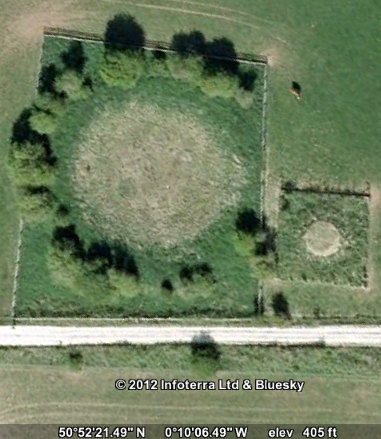
Sweet Hill: it may once have supplied water for the smallholdings on the Sweet Hill Estate.
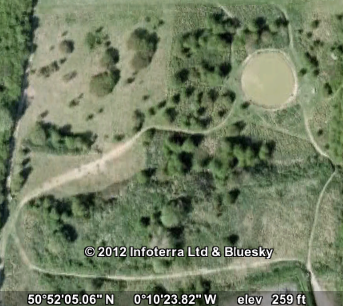
Waterhall Bottom: Edward Martin records a dew pond at Waterhall Valley in 1907 and 1914, and provides photographs. But this is not it. This one was constructed around 1999, adjacent to a former landfill site.
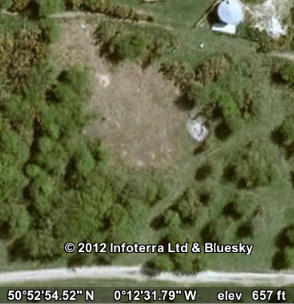
Behind the Dyke Golf Club car park, close to the South Downs Way.
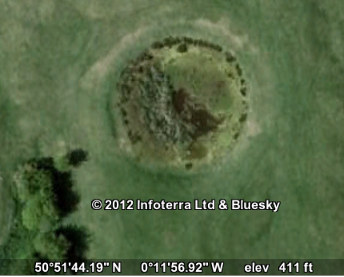
Towards the southern corner of the Brighton & Hove Golf Club course. The pond pre-dates the construction of the course in 1891 and was retained as a hazard but filled in after WWII. It was restored in the late 1990s. The pond cannot be seen from the public footpath that runs along the western edge of the course.
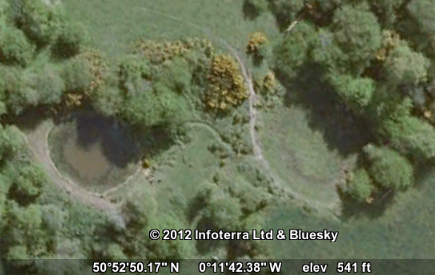
Two dew ponds at Pond Brow: these are on private land.
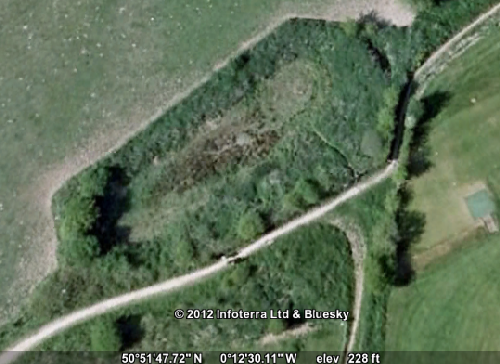
New Barn Dew Pond: adjacent to the public footpath between Brighton & Hove Golf Club and New Barn Farm. Note the unusual oblong shape. A local ornithologist reports sightings of chaffinches, corn buntings, dunnocks, goldfinches, green woodpeckers, linnets, ring ouzels, robins, sparrowhawks, swallows, yellowhammers, and yellow wagtails.
More on dew ponds.
Addition: Brighton & Hove Golf Club, 24th November 2012.
Currently popular local history posts:

